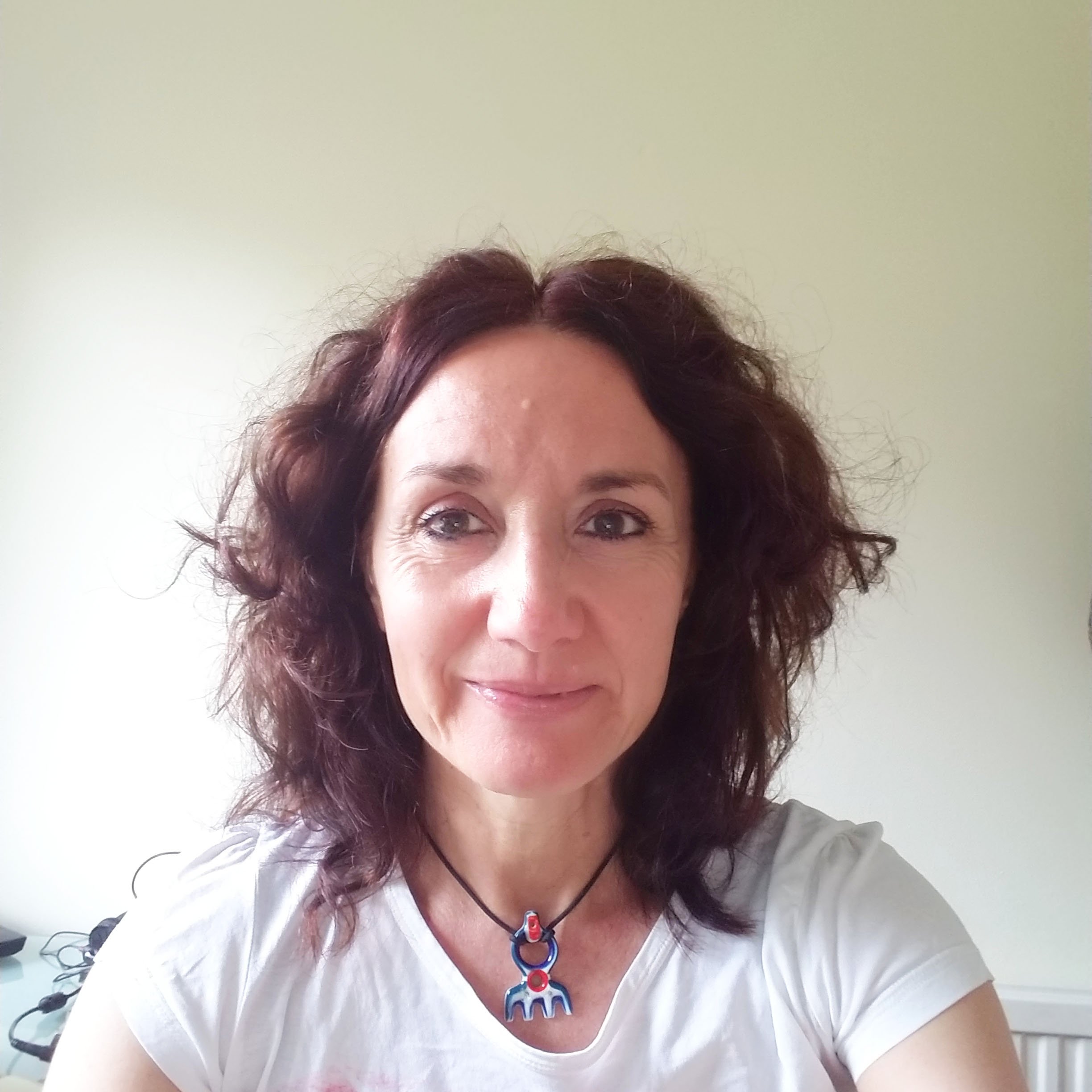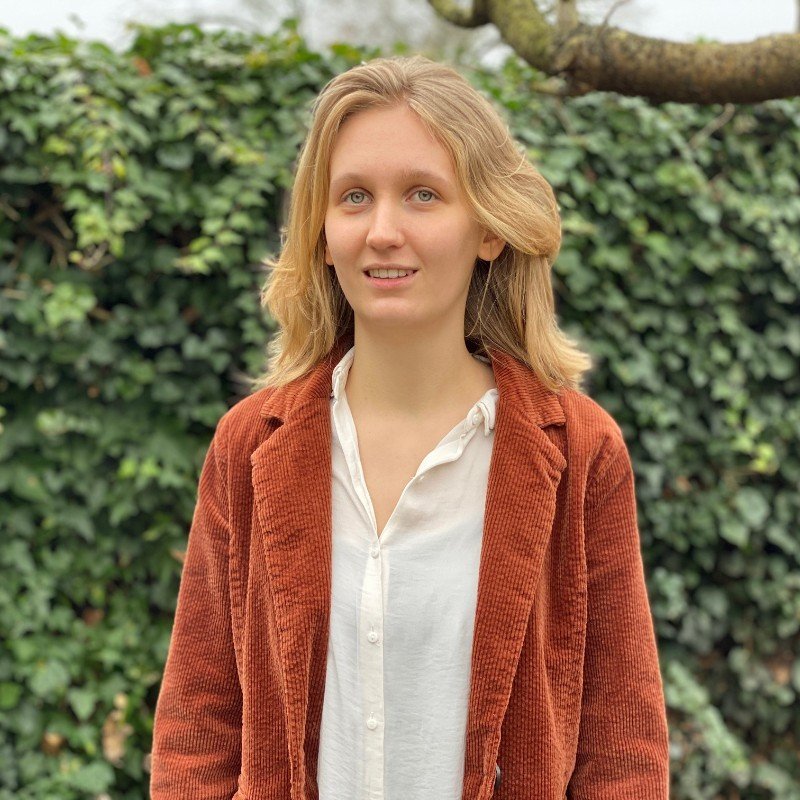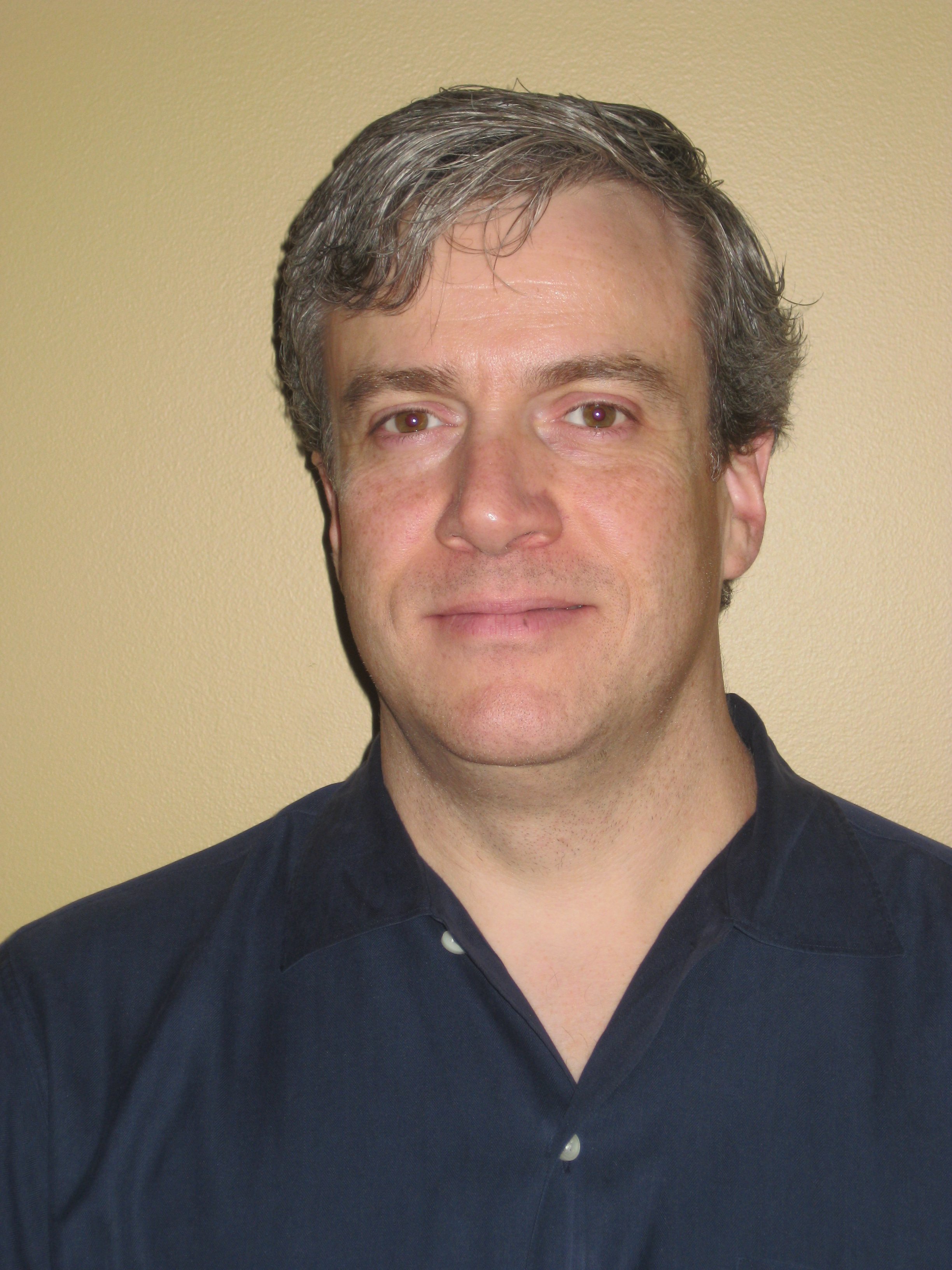Speakers
-

Yassen Abbas
Dr. Yassen Abbas is a Lead Scientist at CN Bio Innovations. He completed an MEng in chemical engineering at The University of Edinburgh and joined the European Space Agency as a graduate engineer. He later received a PhD from the University of Cambridge and completed a postdoc fellowship, also at Cambridge on the development of a tissue engineered model of the human endometrium. He has experience with real-time sensor technology, organoids and development of in vitro tissue models using human primary cells. Dr Abbas has published five peer-reviewed scientific articles, four as first author.
-

Zubida Al-Majdoub
Zubida Al-Majdoub is a Senior Research Fellow at the Centre for Applied Pharmacokinetic Research (CAPKR), University of Manchester, Division of Pharmacy and Optometry, overseeing research in applied pharmacokinetics, liquid biopsy and precision dosing. Zubida has extensive experience in multi-’omics’ as applied to the investigation of drug metabolism and transport in different systems including tissue (liver, kidney, intestine, brain, placenta, skin, etc.) and in vitro systems, for the purpose of enabling in vitro-in vivo extrapolation (IVIVE) and leveraging precision dosing strategies. Another focus of her research in recent years has been related to changes in protein expression in disease state (e.g. Alzheimer’s Disease, dementia, Lewy Bodies and Biliary atresia).
-

Kevin Beaumont
Kevin Beaumont, Senior Director DMPK, Oncology R&D, Astrazeneca Kevin Beaumont has worked in the pharmaceutical industry for 39 years. Throughout that time he has worked extensively in the drug metabolism field, especially as it relates to drug discovery support. His major area of expertise is in the modulation of physicochemistry to affect drug disposition and in prediction of human pharmacokinetics from preclinical information. He is author on over 50 peer reviewed publications. Kevin joined the Department of Drug Metabolism at Pfizer Sandwich UK on 1st September 1983, directly from his BSC in Biochemistry at the University of London. His early career involved developing a fundamental understanding of the basics of DMPK support to discovery and development projects, under the mentorship of Dr Dennis Smith. This included developing expertise in small molecule bioanalysis, completion of radiolabelled ADME studies and direct DMPK support to discovery and development projects. In September 2011, Kevin transferred to Pfizer Inc in Boston Mass, where he was responsible for DMPK/ADME support to the Cardiovascular, Inflammation and Immunology and Rare Disease Therapeutic Areas. After 9 years in the US, Kevin returned to the UK and has worked for the last 3 years at Astrazeneca supporting Oncology R&D with DMPK expertise.
-

Ian Copple
Ian Copple is Professor of Pharmacology & Toxicology at the University of Liverpool. Having completed post-doctoral training at Karolinska Institutet (Sweden) and Universiteit Leiden (Netherlands), he was appointed to the tenure track programme in Liverpool in 2013. Ian’s research employs physiological, pharmacological and toxicological approaches to understand the mechanisms by which cells sense and respond to chemical insults, particularly those associated with therapeutic drugs known to cause adverse effects in patients. He is especially interested in the role of the cytoprotective NRF2 pathway in determining cellular susceptibility and adaptation to chemical and oxidative stress, and exploring strategies for exploiting this knowledge to improve patient safety and facilitate the development of novel therapies. Ian was awarded a prestigious MRC Senior Fellowship in 2023. He has also received the 2018 Early Career Investigator Prize from the British Toxicology Society and the 2023 Early Career Award from the Toxicology Division of the American Society for Pharmacology & Experimental Therapeutics. In addition, Ian is currently Vice Chair (Chair Elect) of the Scientific Subcommittee of the British Toxicology Society, and a member of the NC3Rs Grant Assessment Panel.
-
Georges Da Violante
Georges Da Violante studied Pharmacy in Paris (France) and obtained his PhD in 2003 in Pharmaceutical sciences on the use of Caco-2 cells for the evaluation of intestinal permeability of poorly soluble compounds at GlaxoSmithKline. In 2003, he took a position as project leader in the department of early DMPK at Servier in France before being appointed Deputy Head of Biopharmaceutical Research department in charge of the early ADME screening (in vitro and in vivo based experiments) as well as the implementation of new approaches in early drug discovery such as in vitro drug transporter-based models. He was appointed Head of the Biotransformation and Biodistribution department in 2013 focusing on metabolite structural/Metabolite profiling from Research to Development and the integration of mass spectrometry imaging into projects. He is leading the Servier Multimodal Molecular Imaging and Data Science community which is dedicated to connecting all the imaging experts at Servier.
-

Carrie Duckworth
Dr. Duckworth completed a BA(Hons) degree at Girton College, University of Cambridge in 2003 and PhD in Gastroenterology at the University of Liverpool in 2008. Following 3 post-doc posts, she became a tenure-track fellow in 2013 and tenured lecturer (equivalent of Assistant Professor in other countries) in 2016. Carrie is now a lecturer in the Department of Cellular Molecular Physiology, in the Institute of Translational Medicine at the University of Liverpool.
-

Giuseppe Ermondi
Giuseppe Ermondi, PhD, holds a position as Associate Professor in Medicinal Chemistry at the Department of Molecular Biotechnology and Health Sciences of the University of Turin. His main scientific activity is the design and the application of computational tools and tailored molecular descriptors to predict physicochemical properties related to ADME and biological activity of molecules. Recently, he has focused his research activity on the physicochemical profiling of molecules belonging to the so-called 'beyond the rule of 5' (bRo5) chemical space with special emphasis on PROTACs and macrocycle classes. He has published more than 100 papers, 3 book-chapters and 2 software products.
-

Anthony Evans
Anthony Evans is a computational biology data scientist at the University of Liverpool, UK, with 12 years of experience studying biomarkers for clinical use. His PhD focused on identifying and characterising blood-borne biomarkers for pancreatic cancer diagnosis, with subsequent work incorporating predictive biomarkers for response to cancer therapy. He currently works at Liverpool’s Computational Biology Facility, using transcriptomics to predict and classify disease severity and drug-induced organ injury, alongside interests in non-invasive methods to detect fluid imbalance in preterm neonates.
-

Aleksandra Galetin
Dr Galetin is a Professor of Translational Pharmacokinetics in the School of Health Sciences, University of Manchester, UK and Deputy Director of the Centre for Applied Pharmacokinetic Research. She has served on the ISSX Council (2017-2021) and has started her term of office as ISSX President-Elect in January 2022. Dr Galetin holds long-standing leadership position in the International Transporter Consortium (ITC) where she led multiple white papers, defining best practices for the application of endogenous biomarkers and PBPK modelling of transporter-mediated drug-drug interactions among others topics. In 2016, Prof. Galetin completed a sabbatical in the US FDA Office of Clinical Pharmacology where she provided expert advice on the PBPK modelling of drug-drug interactions and specific populations in new drug applications. She has published extensively and supervised/mentored over 40 graduate students and postdoctoral research associates.
-
Warren Glaab
Dr. Warren Glaab has worked within Safety Assessment at Merck Sharp & Dohme, Inc. for 26 years. Most recently he has served as Senior Director of Systems Toxicology, involved with providing safety biomarker development support to Safety Assessment, incorporating new model systems and technologies including genomics and proteomics, and investigative toxicology research solutions. Previous experience within the Department of Investigative Laboratory Sciences group in Safety Assessment included novel assay development and investigational studies to better understand toxicity mechanisms. He earned his Ph.D. in Toxicology at the University of North Carolina at Chapel Hill, conducted research at the National Institute of Environmental Health Sciences in Research Triangle Park, and completed two postdoctoral positions at National Institute of Environmental Health Sciences and at Merck Research Laboratories in West Point, PA.
-

Matthias Hackl
Dr. Matthias Hackl is the co-founder and CEO of TAmiRNA GmbH, which was founded in 2013 in Vienna, Austria. He holds a Ph.D. in biotechnology and, before co-founding TAmiRNA, developed and led genomic and transcriptomic research projects in academia, including fellowships at the University of Minnesota and the University Bielefeld to decipher the non-coding RNA transcriptome in mammalian cell lines. He has 10 years of experience in in-vitro diagnostics development with a focus on microRNA biomarkers and liquid biopsies. At TAmiRNA Dr. Hackl and his team are currently developing applications of microRNA biomarkers in bone, cardiovascular, and liver disease. Dr. Hackl and his team launched one of the first regulatory-approved microRNA tests in 2022 hepatomiR® - for non-invasive testing of liver function in liver cancer patients. Within the IMI2 project TransBioLine, TAmiRNA leads the efforts to discover and qualify novel drug safety biomarkers for the pancreas, liver, vascular, and CNS.
-

Andreas Harsch
Andreas is currently Head of Preclinical Development at Kymera. He received his Ph.D. in Organic Chemistry for research on synthesis and function of photo-activated DNA cleaving agents. In his post-graduate education, Andreas pivoted to Bioanalytical Chemistry, and specifically worked on separation and ion-trap MS analysis of oligonucleotides. Throughout his industrial career, spanning two decades, Andreas has been home-based in discovery, preclinical, and early clinical DMPK & Clinical Pharmacology, advancing predominantly small molecule drugs through the pipeline. He has held roles of increasing responsibilities at BASF/Abbott, Merck, Astra Zeneca, Novartis, Frontier Medicines, and now Kymera.
-

Steve Hood
Steve Hood received a PhD in Molecular Toxicology from the University of Surrey in 1993 and joined Glaxo Group Research as an Industrial Post doc in the Molecular Biology department at Greenford. 30 years and a couple of mergers later, Steve is now a senior Scientific Director in Bioimaging based at Stevenage where he is responsible for the external imaging collaborations that are members of the Bioimaging Expertise Network (BEN). As part of this network, Steve is also Co-Director of the GSK Centre for Molecular Imaging (COMI) at the University of Illinois at Urbana Champaign, where he works closely with Professor Stephen Boppart and his team. Steve has supervised 15 PhD students, is a visiting lecturer at Cardiff University and is on the Advisory board of 2 Marie Curie Collaborations. In addition to his “day job”, Steve has spent most of the last 2 decades working on GSK’s diverse oligo portfolio and has supported projects ranging from inhaled SiRNAs, TLR antagonists, DMD exon skippers (Prosensa) and ASOs for TTR and HBV with Ionis. Steve was also Industrial co-lead of the IMI COMPACT consortium that ran from 2012-17 and evaluated delivery mechanisms for oligos and peptides and is a reviewer for the UK’s Nucleic Acid Therapeutic Accelerator (NATA). Steve has a long history with the European Drug Metabolism Discussion Group (DMDG) having severed on the committee from 1995-2001 and organised the In vitro training course from 1998 -2011. He was elected as a Fellow of the DMDG by his peers in 2018 in recognition of his service to the society. Steve was also elected as Fellow of the Royal Society of Biology in 2016 and has been a GSK Senior Fellow since 2018, when he joined the Fellows Council.
-

Suzanne Iverson Hemberg
In addition to completing an M.Sc. in Chemical Toxicology (Judy Bolton, University of Illinois at Chicago), Ph.D. in Drug Metabolism and Immunotoxicology (Jack Uetrecht, University of Toronto) and postdoctoral research in mechanisms of mitochondrial toxicity (Sten Orrenius, Karolinska Institutet), Suzanne worked for over 15 years in the pharmaceutical industry, mostly AstraZeneca, in both the DMPK and Safety Assessment functions. Suzanne held various roles, usually at the same time, including Section Director of Development Metabolism and Global Distribution Imaging, functional project leader in both DMPK and Safety Assessment as well as appointed lead of various cross-site scientific strategy groups. Suzanne supervised two industrial postdocs, in protein-adduct mass spectrometry and mass spectrometry imaging. A change of course in 2015 called and Suzanne was drawn to the university hospital laboratory and was first appointed Director of Medical Physics and Biotechnology, but shortly after was appointed Director of Clinical Chemistry at Sahlgrenska University Hospital in Gothenburg. In 2022 Suzanne and family returned to the East Coast of Sweden after being appointed CEO of Toxicology Knowledge Team Sweden AB, a daughter company of the Center for Translational Research group of companies. Suzanne has been with the PK-Metabolism sub-committee of the Swedish Pharmaceutical Society since 2011 and was on the executive committee of the DMDG from 2011-2016. These engagements resulted in countless presentations, conferences and even a book on Metabolite Safety in Drug Development published in 2016 (Wiley).
-

Claire Jackson
Claire Jackson is a expert physiologically-based pharmacokinetic modeller currently working within the DMPK modelling group at GSK in the UK. She graduated from the University of Cambridge and the Open University and has 14 years of experience in the pharmaceutical industry working in both the UK and USA. Claire has spent 8 years working primarily as a PBPK modeller, and in that time she has worked on projects throughout the drug development cycle. She has a broad experience of how PBPK can be utilised to select lead compounds, guide preclinical study design, predict efficacious human doses, design formulations, and predict drug-drug interactions.
-

Niels Janseen
Niels Janssen is leading the “Brain shuttle” activities in the chapter of Translational pharmacokinetics and Clinical Pharmacology at Roche pharmaceutical research and early development (pRED), Basel. His current focus is on establishing translational PK/PD strategies for brain targeted large molecules in Neuroscience and project overarching strategies in the Large molecule Neuroscience portfolio from discovery to Clinical development. A pharmacist by training, Niels obtained his PhD in Pharmaceutical and medicinal chemistry at the university of Münster, Germany. He has 18 years of professional experience in the pharmaceutical industry in both group and scientific leadership roles. Before joining Roche pRED in 2015, he held positions at Servier and Merck KgA in the UK, France and Germany. As senior DMPK-PD expert he has lead and collaborated with multi-disciplinary teams to discover and develop novel small and large molecule therapeutics including the approved drugs Crovalimab, Satralizumab and Emicizumab.
-

Amit Kalgutkar
Amit Kalgutkar is a Senior Research Fellow in the Medicine Design Group in Pfizer. He received his Ph.D. degree in Chemistry from Virginia Tech and conducted post-doctoral studies at the Department of Biochemistry, Vanderbilt University, prior to joining Pfizer in 1999. Dr Kalgutkar has >20 years’ experience in drug discovery/development, spanning multiple therapeutic areas with over 20 investigational drug candidates nominated for clinical development and two marketed products (PaxlovidTM and Steglatro®). Dr. Kalgutkar is an accomplished scientific leader inside Pfizer as well as in the external scientific community with over 180 peer-reviewed papers, reviews, and book chapters and 8 issued patents. He is currently on the editorial boards of Dug Metabolism and Disposition and Xenobiotica and has served two terms on the editorial board of Chemical Research in Toxicology (American Chemical Society). Dr. Kalgutkar also serves as an Adjunct Professor at the Department of Biomedical and Pharmaceutical Sciences, School of Pharmacy, University of Rhode Island.
-

Gareth Lewis
Gareth Lewis is an Associate Director within the Drug Metabolism & Pharmacokinetics (DMPK) modelling group at GlaxoSmithKline (GSK) in the UK currently working as a physiologically-based pharmacokinetic (PBPK) modeller. He joined GSK in 2003 after obtaining a BSc in Biochemistry (2001) from Cardiff University, Wales, with a year in industry at the former GlaxoWellcome. He’s since received a part-time PhD from University of Strathclyde, Glasgow, Scotland (2017). He has a broad range of DMPK experience from hands-on bench side to virtual bedside, and end-to-end study conduct, including in vitro assays, in vivo studies (organ perfusions, surgical PK & multiple isotope ADME), and the associated bioanalysis. This has supported his current role as a DMPK Development Project Rep and PBPK modeller integrating data for clinical translation and clinical drug-drug interactions supporting projects from Candidate Selection to Registration for both NCE’s and biological platforms for a variety of diseases, such as Malaria and Tuberculosis in Global Health, immuno-infectious diseases like HIV with ViiV, or biological modalities in Biopharm R&D.
-

Christian Maass
Christian Maass is a physicist and computational biologist with over 15 years of academic and industrial international experience. He received his Master in Medical Physics from the University College London in 2012 and PhD from the University of Heidelberg in 2015 and worked as a postdoctoral researcher at the Massachusetts Institute of Technology (MIT), Cambridge, MA, USA until 2018. He specializes in developing and applying digital twins for micro-physiological systems and organs-on-chips (OoC). He is passionate about the integration of computational modeling and biological experiments for translational pharmacology applications. As a principal scientist in industry, Dr. Maass works on applications in various therapeutic areas, e.g. neurodegenerative, inflammatory, and metabolic diseases (Alzheimer, rheumatoid arthritis, NASH/NAFLD). Among others, he developed individualized PBK models for molecular radiotherapy (leukemia), automated workflows for big data (*omics), network-based analysis of inflammation diseases, and mechanistic modeling of OoC data. He is also leading the division to develop further strategies integrating OoC data and computational modeling for translational pharmacology applications. esqLABS is a service company that supports decision-making processes at various milestones along the entire life cycle of pharmaceutical products, from research through development and at the point of care. ESQ leverages biological data through analysis in their modelling & simulation frameworks and helps to understand experimental data better and translate it to in-human response.
-

Dermot McGinnity
Dermot McGinnity graduated in Biochemistry and completed a PhD on cytochrome c peroxidases at the University of Edinburgh, UK and was a Postdoc at the University of Michigan, US with Jud Coon researching the catalytic mechanisms of cytochrome P450. For the last 25 years Dermot has been in increasingly senior roles in Discovery and Development DMPK departments in Pharmaceutical R&D. Dermot was part of the team that discovered BRILINTA and has supported the discovery and/or development of several late stage and marketed drugs including CALQUENCE, ORPATHYS, KOSELUGO, LYNPARZA and TAGRISSO. He is currently Executive Director and Head of DMPK Oncology R&D, AstraZeneca based in Cambridge UK, accountable for non-clinical DMPK and translational PK-PD across multiple modalities including small molecule and biologics. Dermot’s research interests are towards enhancing the predictive capability of human pharmacokinetics and clinical drug-drug interactions and has > 30 peer-reviewed publications.
-

James Monroe
Jim Monroe is a Senior Principal Scientist in the Investigative Toxicology group within Nonclinical Drug Safety at MSD. Jim has led efforts to develop novel in vitro and in vivo models as mechanistic problem-solving tools to support risk assessment early in the drug discovery pipeline. Jim received a Ph.D. in Biological Chemistry and Molecular Pharmacology from Harvard University and did postdoctoral work in epigenetic toxicology with Dr. Thomas R Skopek at MSD.
-

Aram Oganesian
Education: PhD Toxicology (1997) from Oregon State Univ (Corvallis); Moscow State Univ (USSR): MS Biology (1992) Board Certification: Toxicology (DABT) from Amer Board of Tox. since 2009. Work background: Wyeth Research 12 years, Pfizer (briefly, after buyout), then Astex since 2010
-

Andres Olivares-Morales
Andres Olivares-Morales, Pharm.D, Ph.D. is an accomplished drug developer and leader with more than ten years of experience of applying modeling and simulation to accelerate drug discovery and development. He is a pharmacist by training and holds a PhD in Pharmacometrics from The University of Manchester in the UK. He currently works at Roche as a Clinical Pharmacologist and DMPK project leader, where he leads the design and execution of translational clinical pharmacology, M&S, DMPK and PK/PD strategies across projects to transform molecules into medicines. Andres’ research is focused on the development and application of mechanistic physiologically based pharmacokinetics (PBPK) and PK/PD models for translational purposes, across species and in special populations such as pediatrics, where he has significantly contributed to the field in terms of research publications, abstracts and conferences presentations both as lead, co-author and invited speaker.
-

Neil Parrott
Neil Parrott works in the translational modelling and simulation group which is part of the Predictive Modeling and Data Analytics Chapter of Roche Pharma Research and Early Development in Basel, Switzerland. Neil specializes in physiologically based pharmacokinetic (PBPK) modeling and its application to Roche projects from early discovery to the market. Neil has a particular interest in the applications of PBPK modelling for first in human PK prediction, to guide formulation development, to guide studies in special populations such as children and to help manage drug-drug interactions by integrating data from advanced in vitro systems. He is involved in various research activities to develop better PBPK models and is active in cross-industry consortia such as the International Consortium on Innovation and Quality in Pharmaceutical Development (IQ). Neil has published over 130 papers and has given numerous presentations at international conferences.
-

Carmen Pin
Dr. Carmen Pin is a senior director in the Systems Medicine team of the Clinical Pharmacology Safety Sciences unit at AstraZeneca in Cambridge, UK. Prior to joining AstraZeneca in 2018, she led the computational gastrointestinal (GI) biology group at the Quadram Institute Bioscience (Norwich, UK). She studied Veterinary Medicine, earned her PhD in Veterinary Science and completed full undergraduate degrees in Statistics (BSc) and Mathematical Statistics (MSc). Carmen has co-authored numerous scientific articles and led some substantial scientific research projects funded by the EU and BBSRC-UK.
-
Munir Pirmohamed
Professor Sir Munir Pirmohamed is David Weatherall Chair of Medicine at the University of Liverpool, and a Consultant Physician at the Liverpool University Hospital Foundation NHS Trust. He is Director of the Centre for Drug Safety Sciences, Director of the Wolfson Centre for Personalised Medicine and Director of HDR North. He is an inaugural National Institute for Health and Care Research Senior Investigator, Fellow of the Academy of Medical Sciences in the UK, and Chair of the Commission on Human Medicines. He is also a non-executive director of NHS England, and a medical trustee for the British Heart Foundation. He is the Past-President of the British Pharmacological Society. He was awarded a Knights Bachelor in the Queen’s Birthday Honors in 2015. His research focuses on: personalized medicine, clinical pharmacology and drug safety.
-

Agnes Poirer
Agnes Poirier is a pharmacist and holds a PhD in pharmacokinetics from the University of Paris Descartes. She started her career in F. Hoffmann-La Roche in the field of active drug transport proteins. From 2012 to late 2021, Agnes has worked as a DMPK/PD project leader at the Roche Innovation Center Basel, focusing on supporting pre-clinical ADME and translational PK/PD aspects of drug development. Her first project was Risdiplam, back then in Lead Optimisation. She has had the privilege to support its development until launch and beyond as a DMPK/PD project leader. Since 2022 Agnes has taken up a new role as a Clinical Pharmacologist.
-
Andreas Reichel
Andreas has more than twenty years of experience in drug discovery DMPK. He is VP and currently heads DMPK M&S which provides the PK and PK/PD modelling support for Bayer Pharma’s entire research portfolio. Previously, he was heading Research PK with responsibility for the complete DMPK support of all drug discovery projects across diverse therapeutic areas from lead generation to preclinical candidate selection & profiling. Andreas holds a PhD in Cell Biology from Leipzig University. During his PostDoc at King’s College London, funded by several pharmaceutical companies, he worked on in vitro models and in silico approaches to assess and predict the CNS penetration of drugs. He then joined Discovery DMPK at Hoffmann-La Roche, Basel, where he expanded his area of expertise to intestinal and hepatic transport processes and their relevance for drug absorption, drug disposition and drug-induced liver injury. Having a passion for scientific innovations he has been supervising >15 Master and PhD students. His latest research interests are in the fields of PK/PD of new modalities, microphysiological systems, oral absorption modelling and drug delivery technologies.
-

Caroline Rynn
Caroline Rynn is a Senior Principal Scientist at Roche and a seasoned preclinical DMPK-PD project leader, with in depth ADME knowledge and capabilities and 25 yearsâ experience gained in the pharma industry. Caroline holds an M.Sc in Neuropharmacology from Bristol University and a Ph.D in Pharmacy from Manchester University. Caroline is motivated to deliver on small molecule oncology discovery and development projects, influencing project strategy and translating PK-PD-disease insights to understand therapeutic benefit. Caroline also joined the DMDG management committee in 2022.
-

Farzaneh Salem
Farzaneh is an Associate Director in DMPK, PBPK modelling at GSK, Stevenage. After joining GSK, she has worked on diverse projects in special population, vaccine program, respiratory product, peptides, and new modalities including oligonucleotides and protacs. She has around 10 years of research and consultancy experience in the field of PBPK, leading to be an author/co-author of over 50 refereed journal papers, book chapters and conferences. Farzaneh has in depth knowledge and experience of developing PBPK models for various compounds and populations within PBPK platforms.
-

Sophia Samodelov
Sophia Samodelov was raised and schooled in the USA, moving to Germany for her university studies and receiving her BSc, MSc, and PhD degrees in biology at the University of Freiburg im Breisgau and the Heinrich Heine University of Düsseldorf. Her undergraduate studies focused on molecular genetics, bioinformatics, and developmental biology, transitioning to a focus on synthetic biology, but with a continued strong implementation and generation of advanced molecular biology techniques during her PhD, where she was a member of the Spemann Graduate School of Biology and Medicine. She completed a post-doc in the department of Clinical Pharmacology and Toxicology of the University Hospital of Zürich, studying the mechanisms and pathophysiology of drug-induced liver and kidney injury, entering into the biomarker field, before assuming the role of Academic Project Coordinator for the IMI TransBioLine Consortium on behalf of the University of Zürich in 2021.
-

Patrick Schweigler
In 2015, Patrick joined the PK Sciences group of Novartis NIBR as Research Scientist. Major responsibilities include working as a drug transporter subject matter expert in different small molecule programs throughout several therapeutic areas. Investigating the role of transporters in drug disposition, change in transporter function in disease state and and its impact in pharmacokinetics. In addition, his current main responsibility and interest is focused on late clinical drug development covering the entire field of PK/PD in support of successful submission of drug candidates into FiH and clinical trials.
Prior to that, Patrick worked for more than 15 years in early and preclinical drug discovery projects in different positions in both the small Biotech as well as big Pharma industry on target finding and hit-to lead identification focusing on the field of proteases/ligases.
-
Armin Sepp
Bio Coming Soon.
-

Scott Summerfield
Scott is currently Head of Pharmaceutical Metabolism at Pharmaron UK, with previous roles at GSK in Bioanalysis, Biomarkers, DMPK and Neuroscience Drug Discovery. From 2003 onwards Scott has been involved in the Discovery and Development of small molecules and biologics as CNS drugs, with a particular interest in the interplay between drug molecular properties and the blood-brain barrier. Graduating in 1992 with a First Class Honours Degree in Chemistry, Scott completed a PhD and post-doctoral fellowship in protein mass spectrometry from Warwick University and Manchester University, respectively. From 1997 onwards Scott has worked in the Pharma industry going on to author and co-author over 60 publications and book chapters, many of which focus on the CNS and DMPK.
-

Helle van den Maagdenberg
Helle van den Maagdenberg is a 2nd year Ph.D. student from the Leiden Academic centre for Drug research under the supervision of Prof. Dr. Gerard van Westen, Dr. Coen van Hasselt, and Prof. Dr. Piet van der Graaf on the topic of virtual drug discovery. Her research lies at the intersection between computational drug discovery and quantitative systems pharmacology. Her current work explores integrating pharmacokinetics and quantitative systems pharmacology models in de novo drug discovery, focussing on applying this pipeline to design novel immune checkpoint inhibitors targeting the adenosine A2a receptor. In addition to her work on this project, Helle contributes to two open-source software projects developed by the computational drug discovery group at Leiden: QSPRpred, a novel quantitative structure-property modelling tool, and DrugEx, a toolkit for multi-objective de novo drug design. She has recently published a review on Artificial intelligence in multi-objective drug design. Prior to starting her Ph.D. program, Helle completed her master's in Computer Science with a specialization in Bioinformatics and holds a bachelor's degree in Bio-Pharmaceutical Sciences from the university of Leiden. Her master’s thesis involved exploring and creating a framework for determining parameter identifiability for a series of Target Mediated Drug Disposition models.
-

Hugh Walton
Hugh completed his Undergraduate and Masters Degrees at the University of Aberdeen. After joining the DMPK and Preclinical Development dept at Astex Pharmaceuticals in 2014, Hugh has focussed his interests on PK/PD modelling and translational research. As DMPK lead scientist, Hugh has contributed to multiple projects from early hits to leads, through lead optimisation and beyond into early clinical development in oncology and central nervous system (CNS) disease indications. In this role, he has developed an interest in the brain delivery of drugs and building PK/PD models linking brain biomarker responses with systemic drug concentrations and circulating biomarkers. Hugh is a keen supporter of the DMDG, first attending training courses / open meetings then serving as apprentice committee member (2017-2019) and now chairing a session this joint meeting.
-

Yanran Wang
Yanran Wang is a Senior Scientist in the DMPK Department at Genentech. Her research interests focus on mechanistic and ML models in predicting preclinical and clinical PK. Her work focuses on customizable in-house PBPK modeling and bridging ML and PBPK models in early drug discovery space for compound design and prioritization. Before joining Genentech, she graduated her PhD in Computational Biology from Rutgers University, USA, and Master’s in Clinical Pharmacy from Sichuan University, China.
-

Beth Williamson
Beth graduated with a PhD in Pharmacology from the University of Liverpool, focussing on DDIs and ADME optimisation within drug discovery, particularly to address bespoke questions. Beth joined UCB in 2022 as Head of ADME in the DMPK department and supports Neuroscience and Immunology projects as a DMPK representative across discovery and development. Beth joined UCB from AstraZeneca where she represented DMPK on Oncology projects as they transitioned along the discovery and development pipeline. Beth also has a keen interest in predictive modelling and organ on a chip technology to enhance DMPK and more broadly preclinical pipelines.
-

Roland Wolf
The unifying theme of my research work has been the identification and characterisation of genes and proteins that determine cellular and individual sensitivity to drugs and environmental agents. These enzyme systems play a pivotal role in determining the therapeutic, toxic and carcinogenic effects of drugs and chemicals. Understanding the functions of these proteins and their regulation is of central importance to human health in disease aetiology, risk assessment, disease prevention, in ageing and in drug development and use. These pathways include the enzyme systems involved in the metabolism of drugs and environmental chemicals as well as the cellular stress pathways which define cell life and death such as oxidative stress, DNA damage etc. Member of national and international committees dealing with drug development and use and environmental toxicology. Founder of CXR Biosciences and PhaSER , a company exploiting humanised transgenic models to predict the risk of drug side effects as a consequence of polypharmacy. Over 540 publications. Recipient of the ISSX European and International Scientific achievement awards.
-

James Yates
James Yates is Scientific Director at GSK and leads the nonclinical PKPD modelling team. He has a background in mathematics and engineering (University of Warwick, UK) and has 18 years’ experience in drug discovery and development, particularly in oncology. He has published over 80 papers on translational PKPD. He has a particular interest in the application of mathematical modelling for translation from nonclinical to patients and between patient populations.
-

Donglu Zhang
Donglu Zhang is a Senior Fellow in DMPK at Genentech. He is interested in applying drug metabolism studies in drug design and development of both small molecules and antibody-drug conjugates (ADCs). He received the Sir James Black Award for discovery of and original research on Eliquis from British Pharmacological Society (2018) and the Ondetti and Cushman Award for invention of mass defect filtering method (MDF) from Bristol-Myers Squibb (2007). He has published 120 peer-reviewed articles. He is on Editorial Board of Drug Metabolism and Disposition and Xenobiotica. He received his Ph.D. in Organic Chemistry from University of Utah under the direction of C. Dale Poulter













